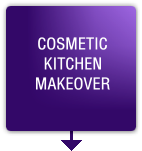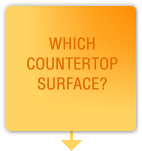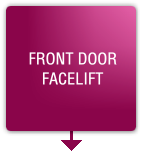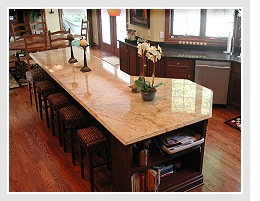 |
 |
 |
 |
Which Countertop Surface? Given that 80% of the homes in the U.S. were built before 1980, it is safe to say that
you are either buying or selling a home that needs a kitchen update. Given that 80% of the homes in the U.S. were built before 1980, it is safe to say that
you are either buying or selling a home that needs a kitchen update.
Most real estate professionals will tell you that countertops are among the most important surfaces in the home. There are lots of options on the market for kitchen countertops and selecting the best surface for your remodeling job can become confusing. I have listed three countertop materials below and hope the information will be helpful. Granite Granite is the countertop material of choice when there are no other things to think about - like money. It defines elegance in a kitchen. As the use of granite becomes more widespread, the price comes down. The beauty of the stone contributes to the beauty of even the most modest kitchen. Pros: holds up to heat; comes in a range of almost 3000 colors; looks permanent and substantial; will last a lifetime; new sealers are almost maintenance-free; 2nd highest hardness rating after diamonds; has a high value to home buyers. Cons: expensive, but becoming more affordable; requires some maintenance; some stones absorbs stains if not sealed; knives can become dull if you cut on it; can crack if stressed or improperly installed. |
|
Concrete If you have countertops in unusual shapes, concrete may be a good choice, as they're often cast right in your kitchen. The high price tag may be beyond most people's budget. Pros: heat and scratch resistant; can be color-tinted; looks exotic and unusual; new treatments eliminate cracking; additives reduce porosity; new finishes are more decorative. Cons: mid to high range on cost due to custom work; cracking is possible; can look somewhat industrial; porous but can be sealed. |
|
Ceramic Ceramic tile is durable and easy to clean. Add to that inexpensive and you've got a really good choice for countertops for the average home. Because it's installed a section at a time, it can be done by most resourceful homeowners. Pros: takes hot pans; easy to clean; wide range of price, color, texture and design. Cons: counter surface is uneven; tiles can easily chip or crack; grout lines become stained; custom-designed tiles are very expensive. |